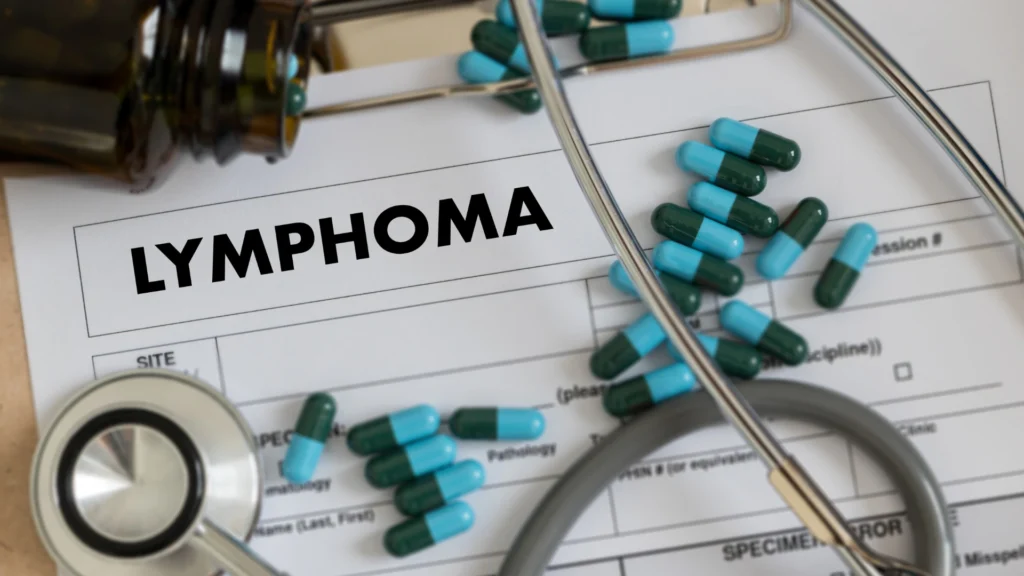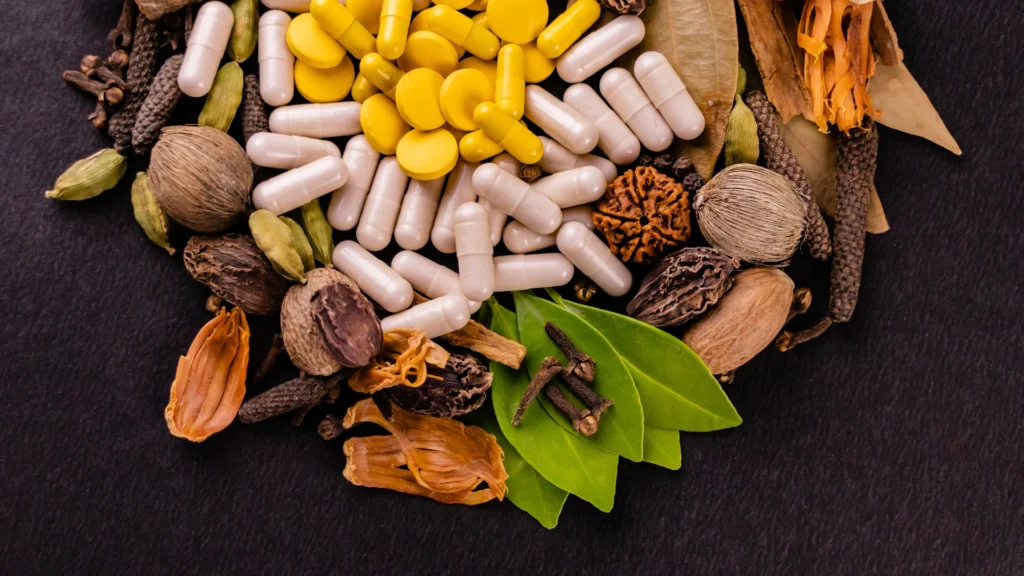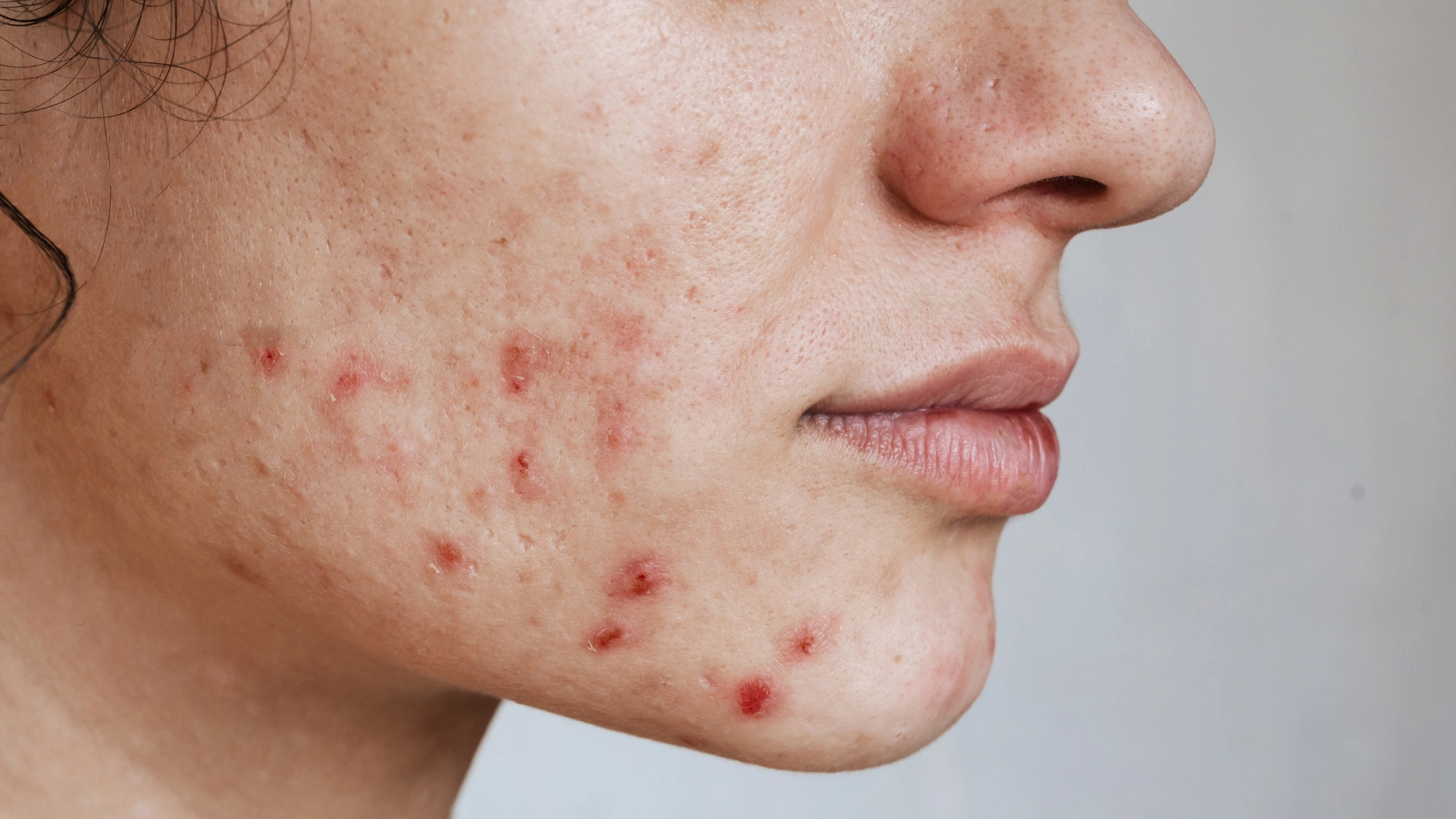
Lymphoma is a type of cancer affecting the lymphatic system, part of the body’s germ-fighting network. Each year, nearly 90,000 new cases of lymphoma are diagnosed in the United States. Lymphoma can occur at any age but is most common in people over 60. It begins in the lymphocytes, which are white blood cells that help fight infections. In this article, you will learn about natural cures for lymphoma, including dietary changes, herbal supplements, stress-reduction techniques, physical activity, and complementary and alternative medicine (CAM) in supporting conventional treatments.
How Can I Cure My Lymphoma Naturally? 5 Ways to Consider
While conventional treatments for lymphoma, such as chemotherapy and radiation, are essential, some individuals explore natural methods to support their treatment and improve their quality of life. Here are five natural approaches to consider:
Consult With Healthcare Professionals
Before starting any natural cure for lymphoma, it is vital to consult with healthcare professionals, including your oncologist and a naturopathic doctor. They can provide personalized advice based on your specific condition and medical history. Professional guidance ensures that any natural cures you consider for lymphoma cancer will not interfere with your conventional treatments.
Explore Dietary Changes, Like Adopting an Anti-inflammatory Diet
Diet plays a significant role in overall health and can impact cancer treatment outcomes. An anti-inflammatory diet may help manage lymphoma symptoms and support the immune system. This diet includes foods rich in antioxidants, such as fruits and vegetables, whole grains, lean proteins, and healthy fats like omega-3 fatty acids. Avoiding processed foods, sugar, and red meat can also reduce inflammation in the body.
Consider Herbal Supplements That Support Immune Health

Certain herbal supplements are believed to support immune health and may offer benefits to lymphoma patients. Herbs like turmeric, green tea, and astragalus have anti-inflammatory and antioxidant properties. For example, curcumin in turmeric has been studied for its potential to inhibit cancer cell growth. However, it’s essential to use these supplements under the guidance of a healthcare professional to ensure they are safe and appropriate for your condition.
Practice Stress-Reduction Techniques, Such as Meditation or Yoga
Managing stress is crucial for individuals with lymphoma, as chronic stress can weaken the immune system. Incorporating stress-reduction techniques like meditation, yoga, and deep breathing exercises into your daily routine can help reduce anxiety and promote relaxation. Studies have shown that these practices can improve cancer patients’ quality of life and emotional well-being.
Engage in Regular Physical Activity to Enhance Overall Health
Regular physical activity benefits lymphoma patients by boosting energy levels, improving mood, and supporting the immune system. Moderate exercises such as walking, swimming, or gentle yoga are often recommended. Exercise can also help combat treatment-related fatigue and improve overall physical function. It is important to tailor your activity level to your abilities and consult with your healthcare team to create a safe exercise plan.
Traditional treatment vs. CAM
Traditional treatments for lymphoma typically include chemotherapy, radiation therapy, immunotherapy, and sometimes stem cell transplants. These methods aim to destroy cancer cells, reduce tumor size, and prevent the spread of the disease. Chemotherapy uses powerful drugs to kill rapidly dividing cells, while radiation therapy targets specific areas with high-energy rays. Immunotherapy helps boost the body’s immune system to fight cancer and stem cell transplants replace damaged bone marrow with healthy cells.
Complementary and Alternative Medicine (CAM) includes a variety of practices and products that are not considered part of standard medical care. These may involve natural products like herbs and supplements, mind-body practices such as meditation and yoga, and alternative systems like acupuncture and homeopathy. CAM approaches are often used alongside traditional treatments to help manage symptoms, reduce side effects, and improve quality of life.
It’s important to note that CAM therapies should not replace conventional treatments. They can be used as supportive measures but should always be discussed with healthcare providers to ensure they are safe and won’t interfere with standard care.
What Is Lymphoma?
Lymphoma is a type of cancer that begins in the lymphatic system, which is part of the body’s immune system. The lymphatic system includes the lymph nodes, spleen, thymus gland, and bone marrow. Lymphoma starts when lymphocytes, a type of white blood cell, grow uncontrollably and form tumors. There are two main types of lymphoma: Hodgkin lymphoma and non-Hodgkin lymphoma. The presence of Reed-Sternberg cells, a specific type of abnormal cell, characterizes Hodgkin lymphoma. Non-Hodgkin lymphoma encompasses diverse blood cancers that vary in behavior and treatment. Symptoms of lymphoma can include swollen lymph nodes, fatigue, fever, night sweats, and unexplained weight loss.
Can I Cure Lymphoma Without Chemo
While chemotherapy is a common and effective treatment for lymphoma, some individuals seek alternatives due to concerns about side effects. In some cases, lymphoma can be managed without chemotherapy, particularly in certain slow-growing, indolent lymphomas. Treatments may include targeted therapies, immunotherapy, or radiation therapy. For instance, immunotherapy uses the body’s immune system to target and destroy cancer cells. Targeted therapies focus on specific molecules involved in cancer growth.
However, completely avoiding chemotherapy is generally not advisable without the guidance of a healthcare professional. Chemotherapy remains a cornerstone of treatment for many aggressive types of lymphoma due to its effectiveness in killing cancer cells. Patients interested in reducing or avoiding chemotherapy should discuss all available options with their oncologist to determine the best-individualized treatment plan. It is crucial to balance the desire for less invasive treatments with the need for effective cancer control.
How Does Acupuncture Help Lymphoma Patients?

Acupuncture, an ancient practice from traditional Chinese medicine, involves inserting thin needles into specific points on the body to stimulate energy flow and promote healing. For lymphoma patients, acupuncture can offer several benefits. It is often used to manage treatment-related side effects such as nausea, vomiting, and pain. Studies have shown that acupuncture can help reduce chemotherapy-induced nausea and vomiting by stimulating nerves that release neurotransmitters, which can modulate the body’s response to nausea.
Additionally, acupuncture can alleviate pain and improve overall well-being by promoting the release of endorphins, the body’s natural painkillers. It can also help reduce stress and anxiety, which are common among cancer patients, by balancing the body’s energy and promoting relaxation. However, patients need to seek acupuncture from licensed practitioners who are experienced in treating cancer patients to ensure safety and efficacy.
What Is the Role of Diet in Managing Lymphoma?
Diet plays a significant role in managing lymphoma, supporting overall health, and alleviating some disease symptoms and its treatment. A balanced diet rich in nutrients can strengthen the immune system and help the body cope with the demands of cancer treatment. Foods high in antioxidants, such as fruits and vegetables, can help combat oxidative stress and inflammation, often elevated in cancer patients. Lean proteins, like chicken, fish, and legumes, are important for maintaining muscle mass and energy levels. Whole grains provide essential vitamins and minerals and help maintain steady energy levels throughout the day. Avoiding processed foods, excessive sugar, and unhealthy fats is crucial, as they can exacerbate inflammation and contribute to other health issues.
Additionally, staying hydrated is essential, especially during chemotherapy, as it helps the body flush out toxins and can reduce side effects like fatigue and nausea. Patients should work with a nutritionist or dietitian specializing in oncology to create a personalized dietary plan that meets their needs and treatment goals.
Can Massage Therapy Reduce Lymphoma-Related Pain?

Massage therapy can be a valuable complementary treatment for reducing lymphoma-related pain. This hands-on technique manipulates the body’s soft tissues to relieve tension, reduce pain, and promote relaxation. For lymphoma patients, massage therapy can help alleviate muscle tension and soreness, common side effects of the disease and its treatments. It can also improve circulation, which helps reduce swelling and fluid retention often experienced by cancer patients.
Massage therapy can enhance overall well-being by reducing stress and anxiety levels, contributing to better sleep and mood. Certain types of massage, such as lymphatic drainage massage, are specifically designed to help manage lymphedema, a condition characterized by swelling due to the accumulation of lymphatic fluid. However, lymphoma patients must receive massage therapy from therapists trained in oncology massage to ensure the therapy is safe and tailored to their specific medical needs.
How Do I Choose the Right Alternative Medicine?
Choosing the right alternative medicine for lymphoma involves careful consideration and consultation with healthcare professionals. Research alternative therapies such as acupuncture, herbal supplements, and dietary changes to understand their potential benefits and risks. It is crucial to seek advice from your oncologist and a qualified alternative medicine practitioner to ensure the chosen therapies complement your conventional treatments and do not interfere with them. Look for evidence-based treatments with documented effectiveness and safety profiles. Personal preferences, the severity of symptoms, and overall treatment goals should also guide your decision. Always prioritize therapies that have been scientifically validated and recommended by healthcare professionals knowledgeable in conventional and alternative medicine.
Are There Any Clinical Trials for Alternative Lymphoma Treatments?
Yes, clinical trials are exploring alternative treatments for lymphoma. One notable study by the National Institutes of Health (NIH) confirmed an effective, less toxic alternative treatment for diffuse large B-cell lymphoma in adults. This study highlights the importance of ongoing research in finding safer and potentially more effective treatments for lymphoma patients. Clinical trials are essential for evaluating the efficacy and safety of alternative therapies. Patients interested in participating in such trials should consult their healthcare providers and search reputable clinical trial registries to find relevant studies. Participation in clinical trials can provide access to cutting-edge treatments and contribute to advancing medical knowledge.
Summary
Managing lymphoma may involve integrating traditional treatments with complementary and alternative medicine (CAM) approaches. While conventional treatments like chemotherapy and radiation are essential, exploring options such as acupuncture, dietary changes, herbal supplements, stress-reduction techniques, and massage therapy can offer additional support and symptom relief. It’s crucial to consult healthcare professionals before starting alternative therapies to ensure safety and compatibility with conventional treatments. Ongoing research and clinical trials continue to seek less toxic and more effective treatments for lymphoma, offering hope for improved outcomes.









